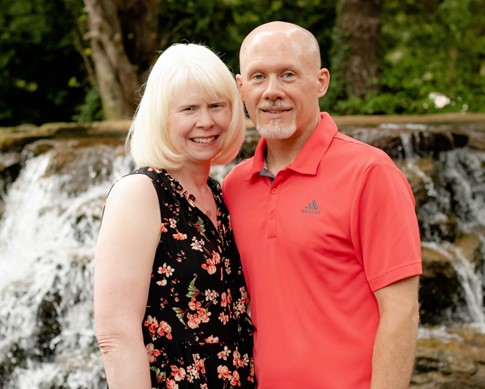“For we are made partakers of Christ, if we hold the beginning of our confidence stedfast unto the end;” (Hebrews 3:14)
The world defines confidence as a feeling of self-assurance arising from an appreciation of one’s own abilities or qualities. As a society, we are pressured to exude self-confidence in our speech and actions and to live an independent life without consideration of others and without fear.
Developing Biblical Confidence
For a believer, biblical confidence is placing our faith in a loving, sovereign God, rather than in our own abilities. Believers are instructed to willingly place themselves under God’s authority and power, which enables them to confidently endure challenges and trials.
Fear can hinder the development of biblical confidence in a believer’s life. Most of our fears are irrational in nature. The possibility of most fears coming to fruition is unlikely or improbable. As a biblical counselor, I will often hear fear in a counselee’s life through statements like this: “I know God can, but I just don’t know if He will.” This may indicate a struggle for a believer who has put his assurance in Christ for salvation, but not for life’s challenges, trials, and sufferings. I often will remind my counselees of the biblical confidence that God has already equipped them with through Peter’s words:
“According as his divine power hath given unto us all things that pertain unto life and godliness, through the knowledge of him that hath called us to glory and virtue:” (2 Peter 1:3)
Charles Spurgeon preached a sermon on needless fears, and he illustrates how fear opposes biblical confidence:
“…many of God’s people are constantly under apprehension of calamities which will never occur to them, and they suffer far more in merely dreading them than they would have to endure if they actually came upon them. In their imagination, there are rivers in their way, and they are anxious to know how they shall wade through them, or swim across them. There are no such rivers in existence, but they are agitated and distressed about them…these timid people are continually crossing bridges that only exist in their…fancies. They stab themselves with imaginary daggers, they starve themselves in imaginary famines, and even bury themselves in imaginary graves….”
God’s Word urges believer’s not to misdirect their confidence in things such as: the flesh (Philippians 3:3); man (Psalm 118:6, 8); wealth (Proverbs 11:28); our own heart (Proverbs 28:26); our own righteousness (Ezekiel 33:13); works and treasures (Jeremiah 48:7).
When we allow Scripture—not the world—to teach us about confidence, we can, by faith, have confidence in: God’s promises (Philippians 1:6); God’s power (1 Corinthians 2:5); God’s sovereignty (Isaiah 14:24); fear of the Lord (Proverbs 14:26); God’s grace and strength (2 Corinthians 12:9); union with Christ (Ephesians 3:11-12); God’s hearing and answering prayer (1 John 5:14); God’s desire to help us (Hebrews 4:16); abiding in Christ (1 John 2:28).
Developing biblical confidence requires us to put off fear and put on trust and faith in our heavenly Father. It is God’s desire that His children no longer live according to fear, so that He may be able to use us to encourage other believers and win others to Christ.
When believers allow irrational and imaginary fears to control their life, what does that say to the lost world? How can we encourage others to put their trust in a God we don’t appear to trust? Are we telling others that our fear is greater than God’s power? Are we convincing others to put their faith in God only for salvation, but not for everyday living?
Fear can be deceitful and debilitating, whether it is fear of a major tragedy or things in everyday life. Without biblical confidence, fear can consume our thoughts. Our fear will be defeated by placing our faith in God and walking confidently in the Holy Spirit and His truth. If you are a child of God, you can boldly live by Paul’s words:
“And the very God of peace sanctify you wholly; and I pray God your whole spirit and soul and body be preserved blameless unto the coming of our Lord Jesus Christ. Faithful is he that calleth you, who also will do it.” (1 Thessalonians 5:23–24)

Kim Shadday
Understanding the need for women to seek trusted Biblical counsel rather than suffering in silence, and from her own personal experiences, Kim submitted to the Lord’s leading to become a Biblical counselor. She has a bachelor’s degree from Indiana University in Social work (1995), a certification from ACBC (2011), as well as a master’s degree from Maranatha Baptist University in Biblical counseling (2019). She is committed, through counseling, to help women understand the importance of good theology as it relates to all of life’s issues.
Kim has been married and serving alongside her husband at Crosspointe Baptist Church for over 25 years. They have two sons, Bryce and Austyn, who are the delight of Kim’s heart. Now that they have flown the coop, she finds herself with more time to enjoy a cup of coffee, a good book, and long walks and bike rides with her loving husband.

